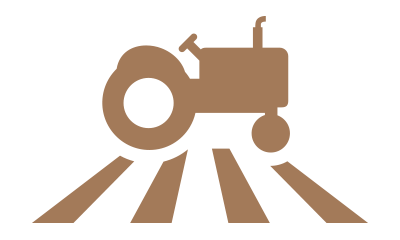Upton Bridge Farm History

In 1949, William and Mollie Walford moved to Upton Bridge Farm, Long Sutton, Somerset, taking on 250 acres. In the early years, there was a milking herd, young cattle stock, pigs, sheep and hens – as well as the arable cropping. Half of the acreage provided for summer grazing and hay production, while the remaining areas made suitable arable farming.
The milking herd required too much investment to increase its size and was eventually sold in 1963, with subsequent emphasis on the beef and arable enterprises. Post 1963 there was a barley-fed beef breeding herd, and subsequent to that, the young calves were bought in at a few months old to avoid the challenges of breeding stock. In 1983 William Walford passed away and his son Timothy took over the running of the farm.
 Farming has long since evolved and our business has also grown and adapted to keep abreast of cultural and societal changes.
Farming has long since evolved and our business has also grown and adapted to keep abreast of cultural and societal changes.
One of the most important changes within society is the recognition and the understanding of the value of our environment and the naturally associated life-cycles within it. This has been reflected in farming methods and there has been a growing increase in returning to more natural farming attitudes i.e. going organic and reducing the use of pesticides or fertilisers. We are proud to say that we encourage the growth of local flora and fauna and rotate cattle in traditional grazing meadows, fed by ancient waterways that require little to no farming. Furthermore much of our grassland is in the Higher Stewardship Scheme – which encourages traditional wildlife and insects to return and flourish in their natural ecosystem.
 Our beef production remains a major farm enterprise and thanks to our family history we have an excellent understanding of the relationship between farming methods and food quality. Nowadays we place a greater emphasis on the breed genome, rearing methods and environmental influences to maximise flavour and tenderness in our final product. Our arable enterprise continues to grow a variety of crops in rotation to keep the soil healthy. This includes wheat, barley, beans and oil seed rape. The barley and beans supplement the herd’s winter diet of silage and hay.
Our beef production remains a major farm enterprise and thanks to our family history we have an excellent understanding of the relationship between farming methods and food quality. Nowadays we place a greater emphasis on the breed genome, rearing methods and environmental influences to maximise flavour and tenderness in our final product. Our arable enterprise continues to grow a variety of crops in rotation to keep the soil healthy. This includes wheat, barley, beans and oil seed rape. The barley and beans supplement the herd’s winter diet of silage and hay.






